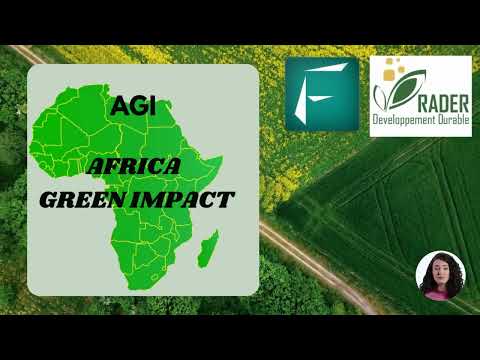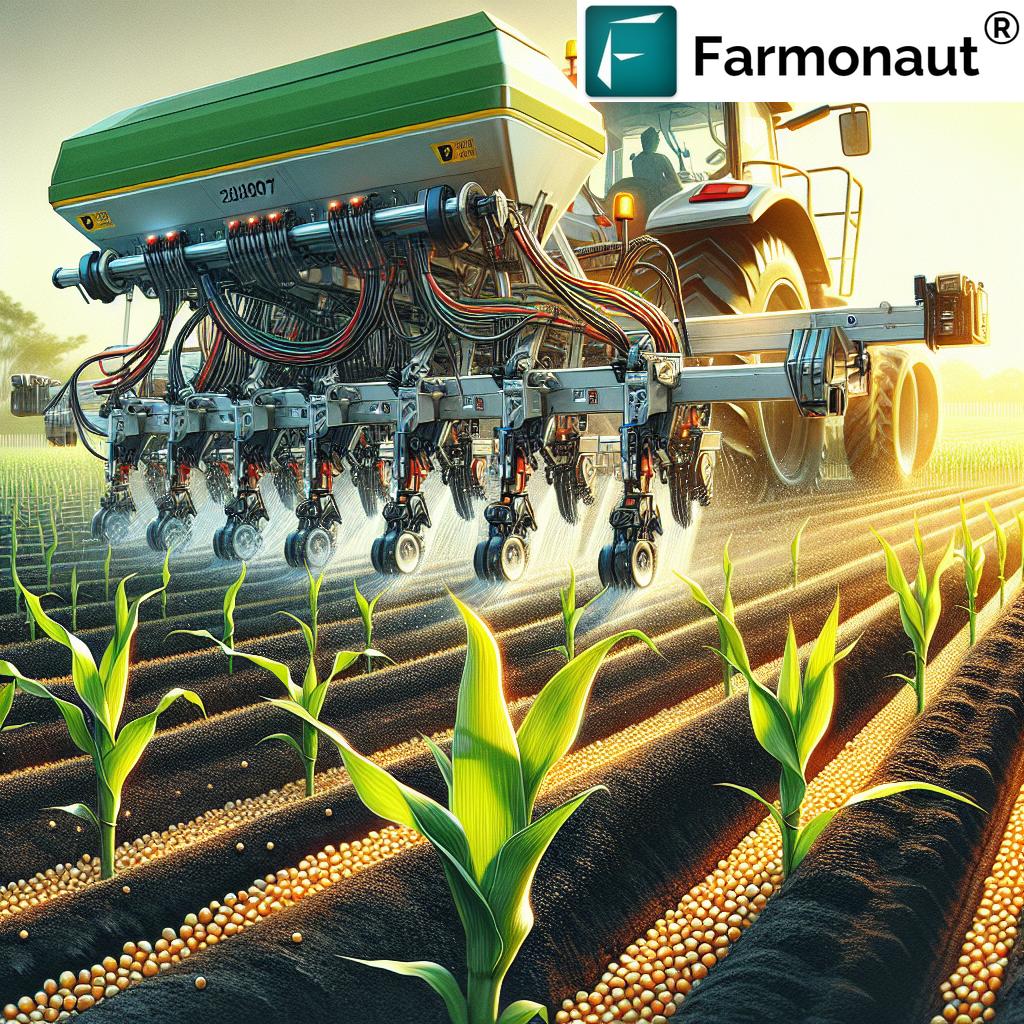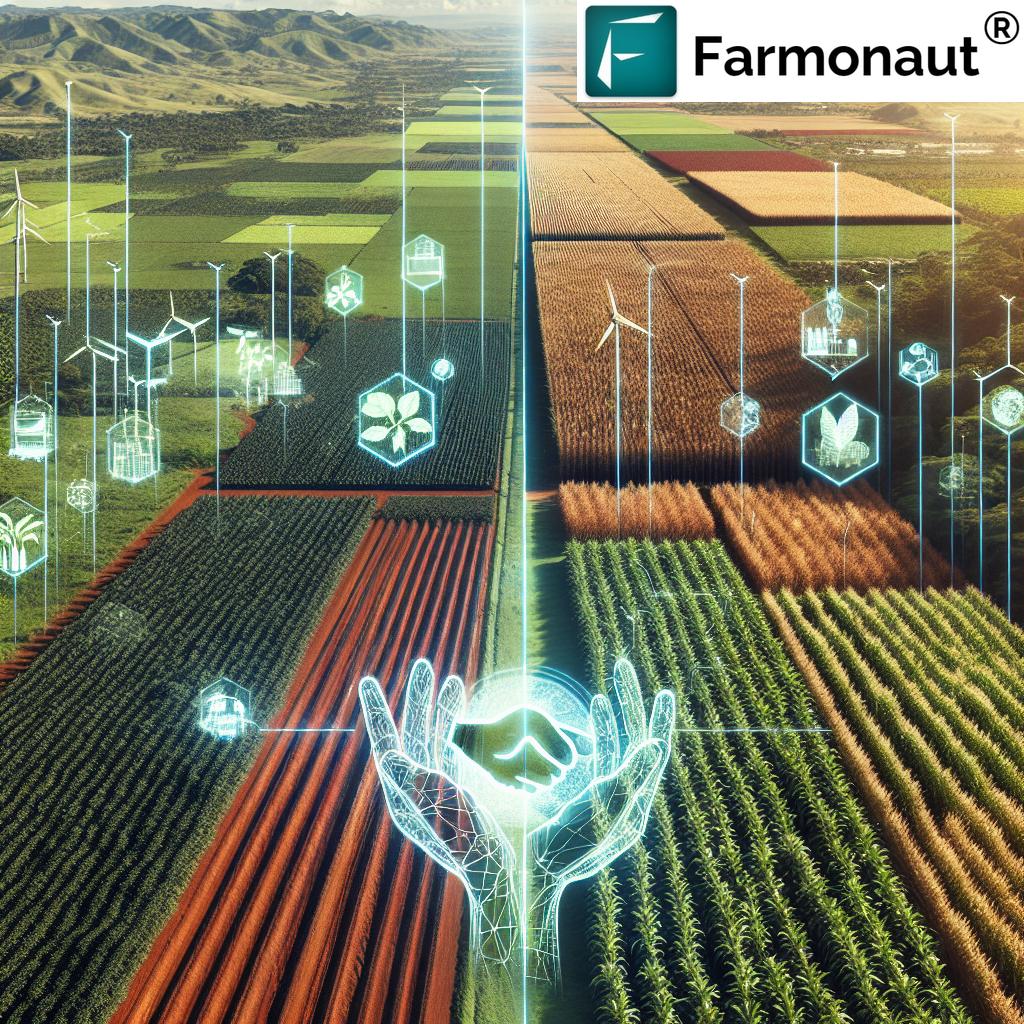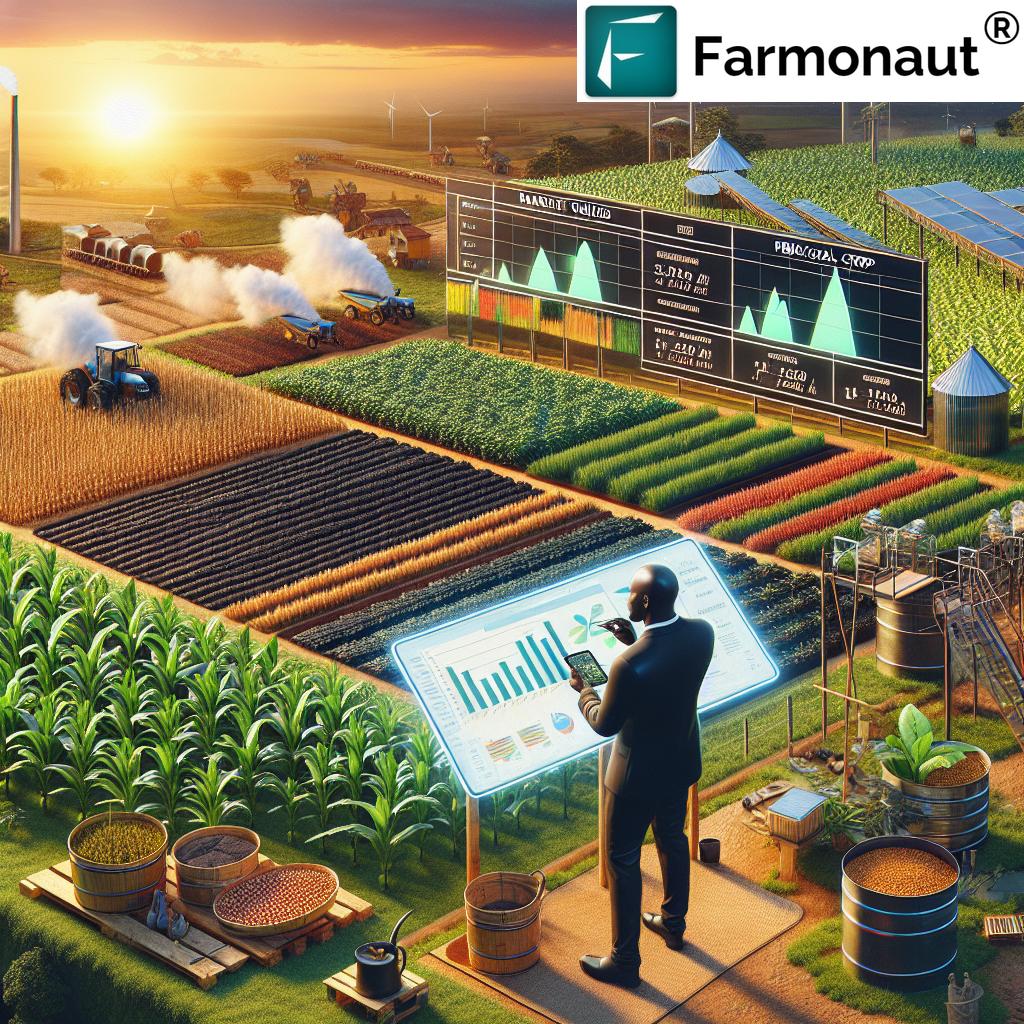Revolutionizing African Food Security: How Agroecology and Sustainable Farming Practices Combat Hunger and Climate Change
“Over 20% of Africa’s population faced hunger in 2020, with Central Africa experiencing a 31.8% undernourishment rate.”

In the face of mounting challenges to food security in Africa, we find ourselves at a critical juncture. The alarming rise in undernourishment across the continent has reached unprecedented levels, with approximately 298 million people – a staggering 20.4% of Africa’s population – grappling with food insecurity. This figure is more than double the global average, highlighting the urgent need for innovative solutions to combat hunger and ensure sustainable food production.
As we delve into this pressing issue, we’ll explore how agroecology and sustainable farming practices are emerging as powerful tools in the fight against hunger and climate change in Africa. We’ll examine the root causes of food insecurity, the limitations of conventional agricultural models, and the transformative potential of agroecological approaches.
The Growing Crisis: Understanding Africa’s Food Security Challenge
The food security crisis in Africa has been steadily worsening since 2015, exacerbated by a complex interplay of factors:
- Climate Change: Erratic weather patterns, prolonged droughts, and extreme events are disrupting traditional farming cycles and reducing crop yields.
- Conflicts: Political instability and armed conflicts displace communities and disrupt agricultural activities.
- Outdated Agricultural Models: Colonial-era farming practices prioritizing commercial crops often neglect local food security needs.
- Economic Barriers: Poverty and lack of infrastructure limit access to available food, even when production increases.
These challenges have exposed the limitations of conventional approaches to agriculture, which often emphasize increased production as the primary solution to food insecurity. However, as we’ve observed, particularly in regions like Central and West Africa, simply producing more food does not guarantee improved access or nutrition for local populations.
The Shortcomings of Conventional Agriculture in Africa
Conventional agricultural models in Africa, many of which are rooted in colonial-era practices, have shown significant limitations in addressing the continent’s food security needs:
- Overemphasis on Commercial Crops: The focus on export-oriented cash crops often comes at the expense of local food production and dietary diversity.
- Environmental Degradation: Intensive farming practices lead to soil depletion, reduced biodiversity, and increased vulnerability to climate change.
- High Input Costs: Reliance on expensive chemical fertilizers and pesticides can trap small-scale farmers in cycles of debt.
- Water Stress: Inefficient irrigation practices exacerbate water scarcity in already drought-prone regions.
For instance, in Mali, the emphasis on cotton production has led to severe soil degradation and worsening child malnutrition rates. Similarly, in South Africa, post-apartheid land reforms aimed at boosting commercial agriculture have resulted in high project failure rates and persistent malnutrition among rural communities.
Agroecology: A Sustainable Solution for African Food Security
“Agroecological practices can increase crop yields by 79% while improving soil health and biodiversity in African farming systems.”
As we confront the limitations of conventional agriculture, agroecology emerges as a promising alternative for sustainable food security in Africa. Agroecology integrates traditional farming knowledge with modern ecological principles, offering a holistic approach to agriculture that prioritizes sustainability, biodiversity, and local food systems.
Key Principles of Agroecology
- Biodiversity: Promoting diverse cropping systems and integrating livestock to enhance ecosystem resilience.
- Soil Health: Emphasizing natural soil fertility management through composting, crop rotation, and reduced tillage.
- Water Conservation: Implementing efficient water management techniques like rainwater harvesting and drip irrigation.
- Pest Management: Utilizing natural pest control methods and promoting beneficial insects to reduce reliance on chemical pesticides.
- Local Knowledge: Valuing and incorporating traditional farming practices and indigenous knowledge.
By embracing these principles, agroecology offers a path to climate-resilient farming that can significantly improve food security while preserving the environment.
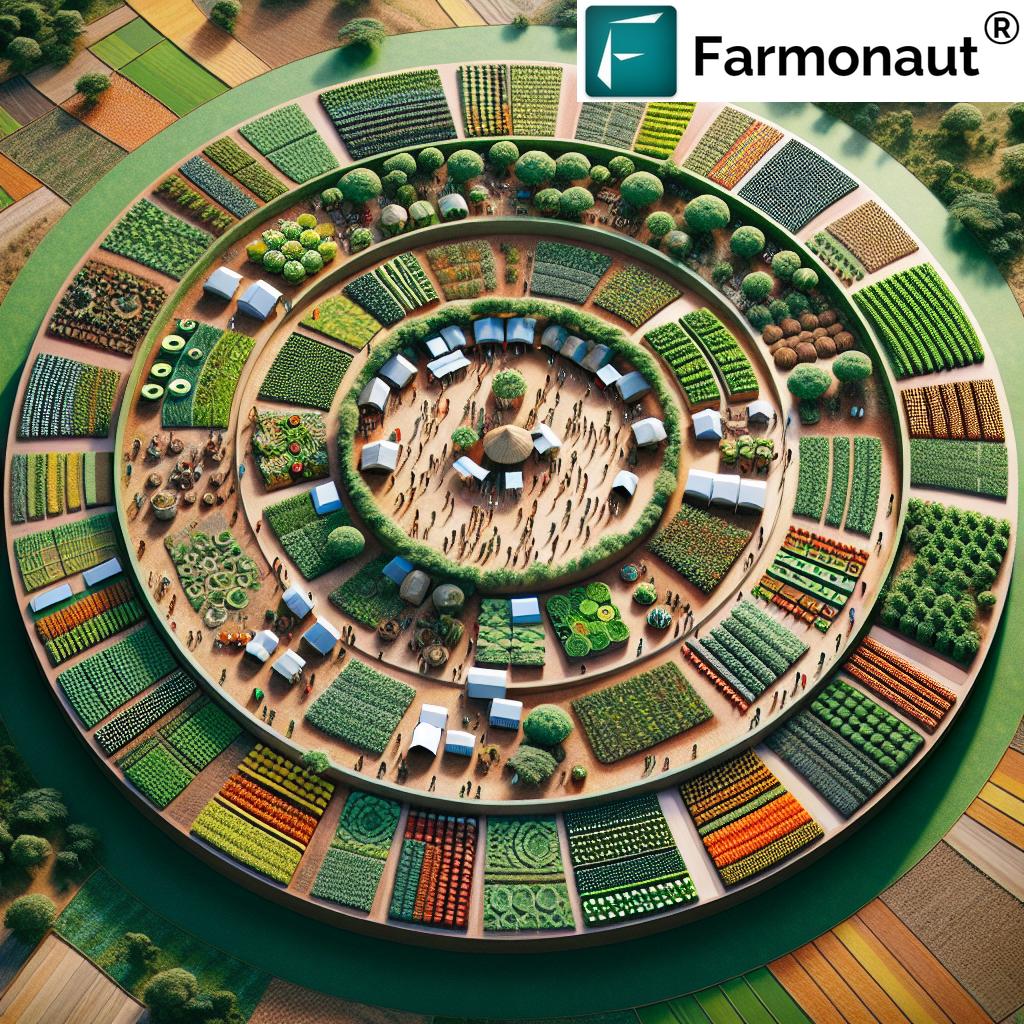
Comparative Analysis: Conventional vs. Agroecological Farming in Africa
| Aspect | Conventional Farming | Agroecological Farming |
|---|---|---|
| Crop Diversity | Monoculture | Polyculture |
| Input Dependency | High chemical inputs | Low external inputs |
| Climate Resilience | Low | High |
| Soil Health Impact | Degradation | Improvement |
| Biodiversity Effects | Reduction | Enhancement |
| Water Usage | High | Efficient |
| Farmer Autonomy | Low | High |
| Long-term Sustainability | Poor | Strong |
| Food Security Impact | Limited | Significant |
| Traditional Knowledge Integration | Minimal | Extensive |
This comparison clearly illustrates the potential of agroecology to address many of the shortcomings of conventional farming practices in Africa, particularly in terms of sustainability, resilience, and food security.
Success Stories: Agroecology in Action across Africa
While agroecology is yet to be fully embraced across the continent, there are encouraging examples of its successful implementation:
- Mali’s Sorghum Shift: During a temporary move away from cotton production, increased sorghum cultivation helped mitigate food price protests in neighboring countries.
- Senegal’s Agroecological Transition: Progressive leaders have advocated for and implemented agroecological practices, leading to improved food security and environmental sustainability.
- South Africa’s Small Farm Initiatives: Smaller, diversified farms have shown promise in improving local food access and nutrition while providing economic opportunities for rural communities.
These examples demonstrate the potential of agroecology to not only improve food security but also to enhance resilience to climate change and economic shocks.
The Role of Technology in Advancing Agroecology
As we champion agroecological approaches, it’s crucial to recognize the role that modern technology can play in enhancing these sustainable practices. Innovative solutions, such as those offered by Farmonaut, can significantly contribute to the success of agroecological farming in Africa.
Farmonaut provides advanced, satellite-based farm management solutions that can support agroecological practices by offering:
- Real-time Crop Health Monitoring: Using satellite imagery to assess vegetation health and soil moisture, helping farmers make informed decisions about resource management.
- AI-driven Advisory Systems: Providing personalized recommendations for sustainable farming practices based on local conditions and crop requirements.
- Resource Management Tools: Helping farmers optimize water usage and reduce reliance on chemical inputs, aligning with agroecological principles.
By leveraging these technological tools, African farmers can enhance the effectiveness of agroecological practices, leading to improved yields, reduced environmental impact, and increased food security.
For more information on how technology can support sustainable agriculture in Africa, visit Farmonaut’s web application or explore their API services.
Policy Recommendations for Promoting Agroecology in Africa
To fully realize the potential of agroecology in addressing food security challenges in Africa, we propose the following policy recommendations:
- Invest in Research and Education: Allocate more resources to agroecological research and incorporate these principles into agricultural education curricula.
- Support Small-scale Farmers: Develop policies that prioritize support for small-scale, diversified farming systems over large-scale commercial agriculture.
- Promote Indigenous Knowledge: Recognize and integrate traditional farming practices into agricultural policies and extension services.
- Incentivize Sustainable Practices: Provide financial incentives and support for farmers transitioning to agroecological methods.
- Improve Market Access: Develop local food systems and markets that prioritize agroecological produce.
- Enhance Climate Resilience: Implement policies that support climate-smart agriculture and agroforestry practices.
By implementing these policies, African governments can create an enabling environment for the widespread adoption of agroecology, leading to improved food security and environmental sustainability.
Challenges and Opportunities in Scaling Agroecology
While the potential of agroecology is clear, scaling these practices across Africa faces several challenges:
- Limited Awareness: Many farmers and policymakers are unfamiliar with agroecological principles and their benefits.
- Lack of Infrastructure: Insufficient storage, processing, and transportation facilities can hinder the development of local food systems.
- Financial Constraints: Initial costs of transitioning to agroecological practices can be prohibitive for resource-poor farmers.
- Policy Barriers: Existing agricultural policies often favor conventional, input-intensive farming methods.
However, these challenges also present opportunities for innovation and collaboration. By addressing these barriers through targeted interventions and supportive policies, we can accelerate the adoption of agroecology across the continent.
The Future of Food Security in Africa: A Call to Action
As we confront the pressing challenges of food insecurity and climate change in Africa, it’s clear that a paradigm shift in our approach to agriculture is not just desirable – it’s essential. Agroecology offers a promising path forward, one that aligns with the needs of local communities, respects traditional knowledge, and works in harmony with natural ecosystems.
We call on policymakers, researchers, farmers, and civil society organizations across Africa to:
- Embrace and promote agroecological principles in agricultural policies and practices.
- Invest in research and education to expand our understanding and implementation of sustainable farming methods.
- Support small-scale farmers in transitioning to agroecological practices through financial incentives and technical assistance.
- Develop local food systems that prioritize diversity, resilience, and community empowerment.
- Leverage innovative technologies to enhance the effectiveness and scalability of agroecological approaches.
By taking these steps, we can work towards a future where food security in Africa is not just a goal, but a reality – a future where sustainable agriculture practices combat hunger, mitigate climate change, and foster resilient, thriving communities across the continent.
Frequently Asked Questions (FAQ)
- What is agroecology?
Agroecology is an approach to farming that applies ecological principles to agricultural systems, focusing on the interactions between plants, animals, humans, and the environment to create sustainable and resilient food systems. - How does agroecology differ from conventional farming?
Agroecology emphasizes biodiversity, natural pest control, and soil health, reducing reliance on chemical inputs. Conventional farming often relies heavily on monocultures and synthetic fertilizers and pesticides. - Can agroecology feed Africa’s growing population?
Yes, studies have shown that agroecological practices can significantly increase crop yields while improving environmental sustainability and resilience to climate change. - What role does traditional knowledge play in agroecology?
Traditional farming knowledge is a cornerstone of agroecology, providing valuable insights into local ecosystems, crop varieties, and sustainable farming techniques. - How can technology support agroecological practices?
Technologies like satellite imaging, AI-driven advisory systems, and precision farming tools can enhance the effectiveness of agroecological practices by providing data-driven insights and resource optimization.
For those interested in leveraging technology to support sustainable farming practices, consider exploring Farmonaut’s solutions:
For developers interested in integrating agricultural data into their own applications, check out Farmonaut’s API Developer Docs.
In conclusion, the path to revolutionizing African food security lies in embracing agroecology and sustainable farming practices. By combining traditional wisdom with modern innovations, we can create resilient food systems that not only combat hunger but also address the pressing challenges of climate change. The journey towards sustainable agriculture in Africa is complex, but with concerted efforts from all stakeholders, a food-secure future is within reach.




